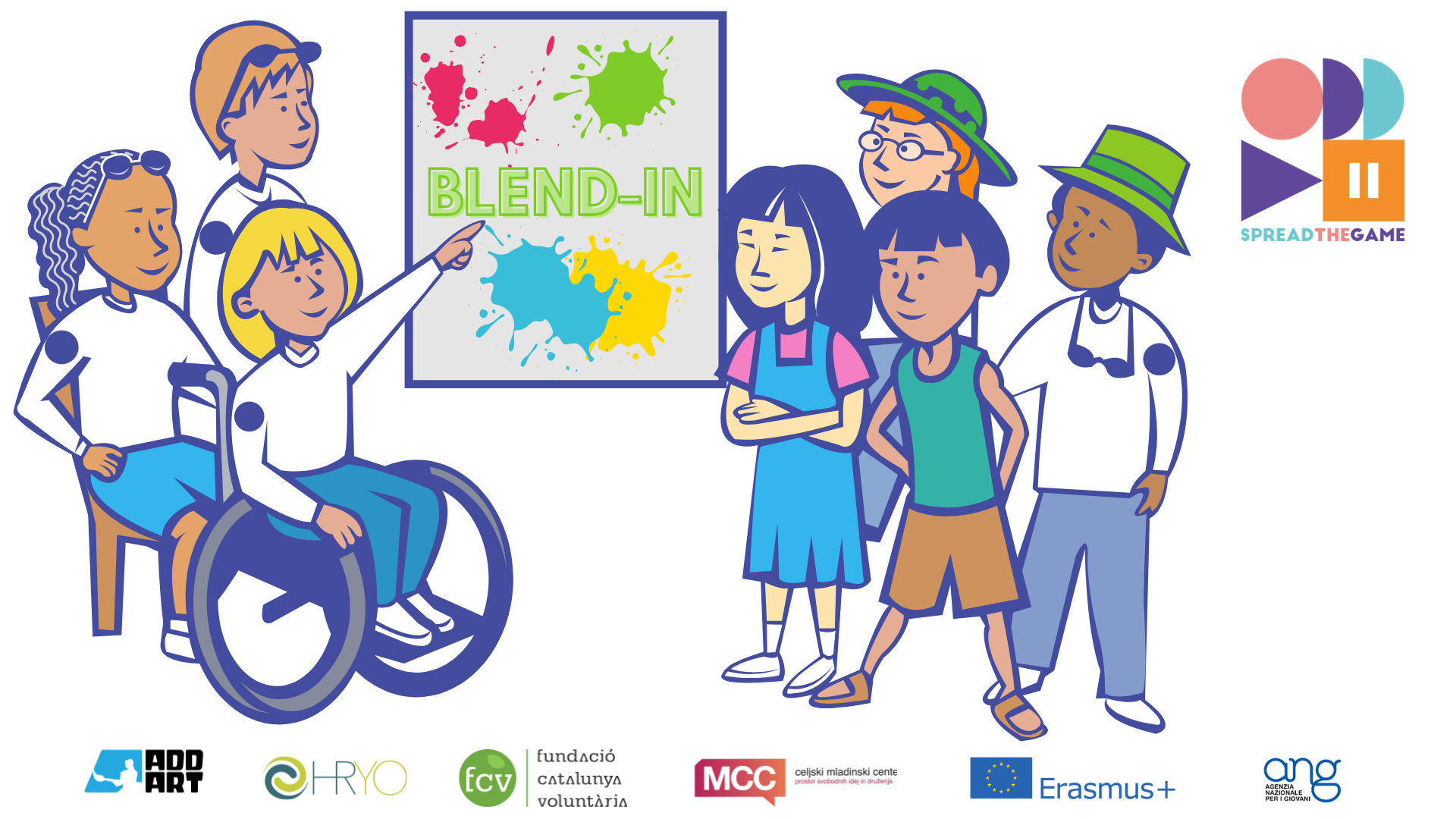As you may have read in previous articles, as part of the project, we are gathering good practices from partner countries in the field of social inclusion. In this spirit, we would also like to highlight the Blend-IN project, from the Slovenian partner, the Celje Youth Center.
Blend-IN was an ambitious 18-month project, which was set to tackle the existing mistrust and non-tolerance among the different communities that live in Europe, through educating youth workers. The project was designed in the complex context of Europe, which is not as united as it was. Still, young people all over the continent have similar interests and problems and present the driving force for enacting positive change. Considering these dynamics, the Blend-IN partnership was driven to contribute to the pan-European efforts to promote the value brought by tolerance and diversity. As part of the project, they set up a platform on which you can play a simulation game on the topic of intercultural dialogue and communication. They have also prepared a handbook for youth workshops for the purposes of training and education in the field of intercultural dialogue and communication. The project was co-financed by the European Union’s Erasmus + program.
As said before as part of the project, they established a platform on which it is possible to play a simulation game on the topic of intercultural dialogue and in the game different scenarios are played out. As a player, you can decide for yourself how you will carry out or solve certain problems or situations.
In today’s dynamic world of youth work, understanding different cultures and responding correctly to different standards has become key for achieving any positive results. Mastering intercultural communication and dynamic management is key when developing initiatives and creating communities, as inevitably there will be the need for both. In the Handbook, the six partners of the Blend-IN project have compiled, through their own experience, desk research, as well as qualitative interviews with professionals, some important points in the topics of:
- Developing and managing communities and initiatives;
- Intercultural communication;
- Dynamic management;
and Best practices in the field of intercultural communication and other simulation games. The Handbook also contains information on the Blend-IN Simulation game and how to use it, as this is the companion output of the project to additionally provide assistance to youth workers in their endeavors.
The English version of the Handbook is available here.
Involving young people in understanding social inclusion is a very important topic that can also be achieved through play and that is why we find this project so relevant.
Written by Celjski Mladinski Center.


Comments are closed